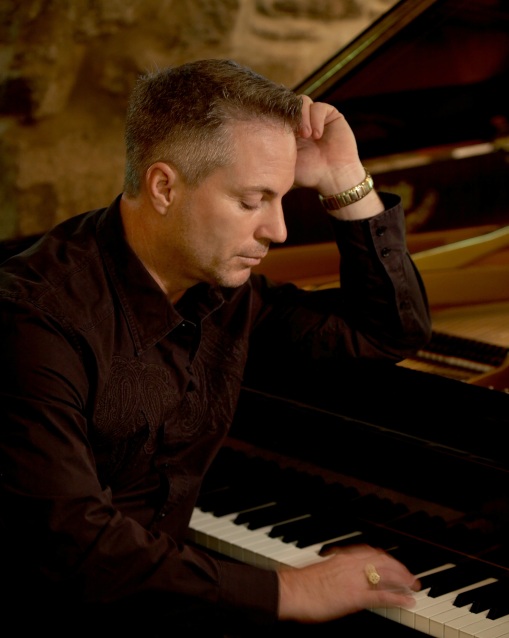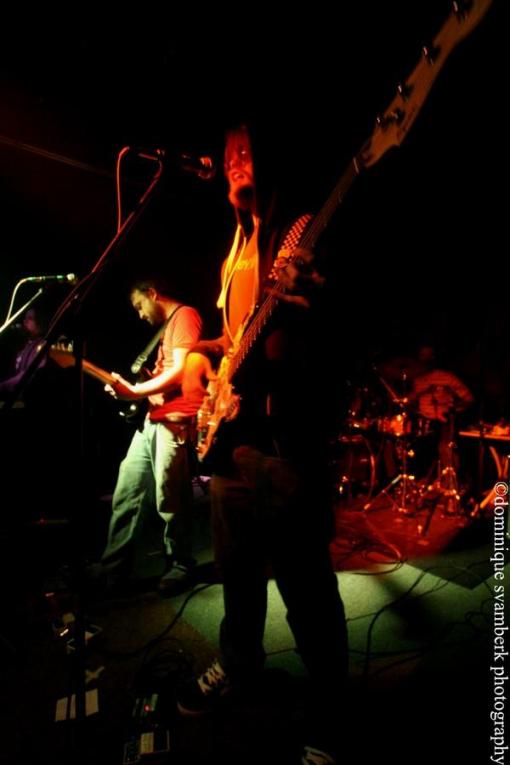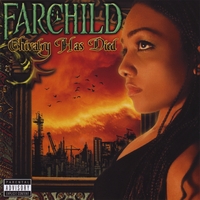Everything moves in cycles, a pattern that is blatantly seen in the music world. Since Franz Ferdinand and the Killers set the stage for a full-blown ’80s New Wave revival in 2003, chilly, sometimes cheesy yet always danceable synthesizers and angular guitar riffs have become in vogue again. White Noise Radio are a part of that movement, if you will, but the songs on their self-titled album elevate themselves from the heap by being more catchy and tuneful.
Julian Wilson: Much of the current ’80s New Wave revival either revolves around musicians that either (a) grew in the ’80s and listened to the genre’s output when it was still new or (b) discovered groups such as the Cure, Depeche Mode, and the Psychedelic Furs while rummaging through pawn shops or their parents’ or older siblings’ collections. Which one are you?
Vinnie Velez: My first exposure to New Wave music was via awesome John Hughes ’80s flicks like The Breakfast Club, Sixteen Candles, and Weird Science. Those sountracks, along with other ’80s movies, became my childhood sing-alongs even though I grew up in the ’90s. I always embraced ’80s fashion growing up as well, substituting bright colors and flash in place of plaid and denim. Now I’m comfortable throwing on a leather jacket, dress shirt, enough hair product to kill an army of ants, ripped jeans, and skater sneaks. I’d call it the New Wave slacker.
Wilson: In what ways is White Noise Radio different from other young acts similarly infatuated with ’80s New Wave?
Velez: With White Noise Radio I didn’t set out to write a New Wave record; the natural process was for those tones to work their way out of my past and into the future of my music. I am definitely a hook addict though when it comes to songwriting, and as soon as someone listens to the WNR debut they will pick up on that. Where other bands would stop writing hooks for a track, I would consider that moment a decent start to a WNR tune.
Wilson: Describe your early days as a musician. What kind of music were you doing?
Velez: I was a punk rocker off the bat, drumming and singing in countless reincarnations of the same small-town band. At the time, the town I grew up in (Germantown, NY) was so repressed that it had actually banned MTV for being too racy. You could imagine the horror of townfolk who came out to the local high school music festival to find my punk band Nemesis thrashing through our rebel song “Genocide.” There were about five guys in town that played an instrument good enough to be in a band and none of them played the keys. I couldn’t play anything but the drums at that point so it was goodbye to Duran Duran and my beloved New Wave and hello to the Clash, Rancid and the Offspring. On my spare time, I taught myself how to play guitar, began fiddling with the keys, and started recording solo demos on a tascam four-track. Eventually, one of those demos got me a call from a Sony Records A&R scout. Her praise and encouragement inspired me to persue a recording career; I was 16 at the time.
Wilson: For over a decade, immediately after grunge ruled the charts, keyboards had become as appealing as cancer in alternative music. Why do you think synth-fueled acts such as the Killers and the Postal Service are reeling in the youth of today as opposed to the generation of the ’90s?
Velez: Yeah, the ’90s reduced the keyboard to a mere computer accessory rather than a musical instrument. If you brought a keyboard to a rock show, you definitely were getting a wedgie and a purple nurple (Titty Twister for the laymen out there). It was unfortunate, but necessary for today’s rebirth. I mean, I missed Robert Downey, Jr.’s career as well. Now look at him go: Iron Man, Tropic Thunder, and all. Everything works in cycles. I am happy to fight alongside the best bands out there like the Killers, getting folks riled up about a new sound utilizing the forbidden instrument. Almost makes me feel dirty (laughs).
Wilson: What is the origin of the name White Noise Radio?
Velez: The name White Noise Radio refers to the broadcast of everything overlooked within us. If you sit out under the stars one night and actually
http://www.thewhitenoiseradio.com












